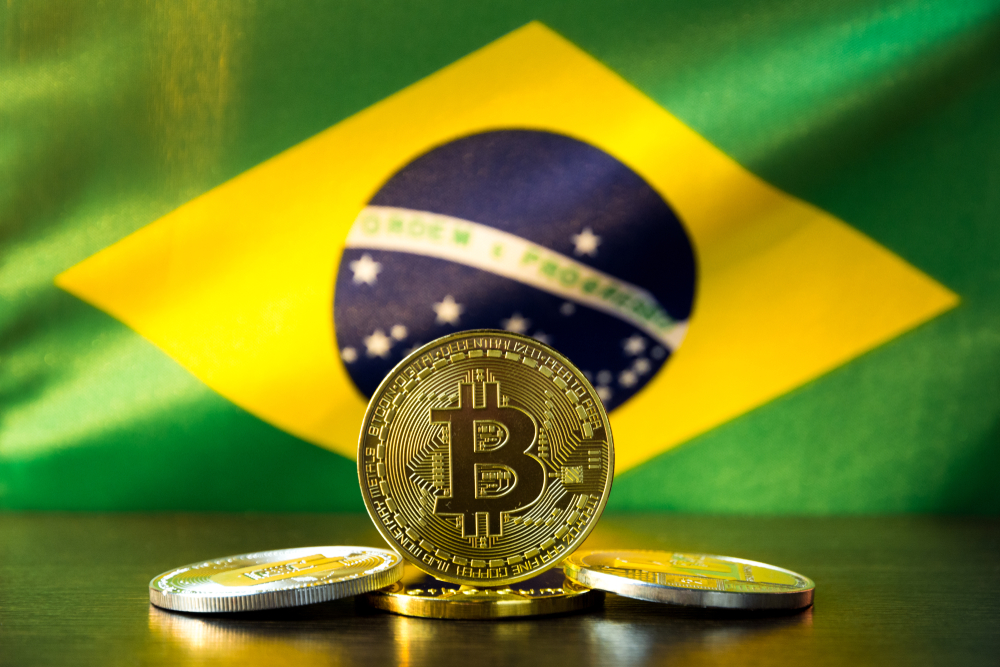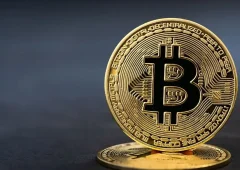Brazil’s Central Bank Dismisses Bitcoin Reserve Idea Despite Legislative Push
01.04.2025 11:00 2 min. read Alexander Stefanov
Recently, Nilton David, Brazil's director of monetary policy at the central bank, dismissed the notion of adding cryptocurrencies to the country’s foreign reserve assets, calling it an inappropriate strategy.
This comes in contrast to the U.S.’s recent move to establish a Bitcoin reserve, a decision that hasn’t been followed by other major economies. Countries like Sweden and Japan have made it clear they aren’t rushing to adopt digital assets for reserves, signaling caution in the global financial community.
At the same time, Brazilian lawmaker Eros Biondini has pushed forward a bill aimed at creating a strategic Bitcoin reserve, which would allow the country to allocate as much as 5% of its international reserves into the leading cryptocurrency.
The proposal includes robust cybersecurity measures and AI-driven surveillance for the reserve. Advocates believe the initiative could not only help mitigate potential economic risks but also elevate Brazil’s standing in the global financial system, attracting foreign investment. However, it remains uncertain if the proposal will gain traction in the legislative process.
On the flip side, Pedro Giocondo Guerra, a prominent official within the Lula administration, has publicly supported the creation of a Bitcoin reserve, calling the digital asset “digital gold.” Guerra argues that such a reserve could play a pivotal role in ensuring Brazil’s economic prosperity.
Yet, while some push for embracing Bitcoin, the National Monetary Council (CMN), Brazil’s top financial regulatory body, has taken a more cautious approach, recently prohibiting certain pension funds from investing in Bitcoin due to concerns over its inherent volatility and risks.
-
1
Bitcoin ETF Inflows Dip, But Assets Keep Climbing
12.05.2025 22:00 2 min. read -
2
White House Official Hints at Bitcoin Purchases Without Adding to U.S. Debt
28.05.2025 22:00 1 min. read -
3
Wall Street Doubles Down on Bitcoin as BlackRock ETF Pulls Ahead
12.05.2025 10:00 2 min. read -
4
Bitcoin Stalls Below All-Time High — But Momentum Is Brewing
11.05.2025 15:00 1 min. read -
5
Bitcoin Market Patterns Suggest Another Consolidation Phase May Be Near
19.05.2025 22:00 2 min. read
Crypto Enters a Make-or-Break Era, Says Industry Insider
Omni cofounder Austin King believes the cryptocurrency industry is on the verge of a major reinvention.
Altcoins Losing Steam as Market Momentum Tilts Toward Bitcoin, Says Analyst
Altcoins may be heading for deeper losses against Bitcoin, according to crypto market analyst Benjamin Cowen, who sees no signs of reversal in the broader trend.
Robert Kiyosaki Warns of Deepening Financial Crisis, Urges Shift to Bitcoin and Precious Metals
Robert Kiyosaki, author of Rich Dad Poor Dad, has raised alarm bells once again—this time warning that the financial system may already be in the early stages of a historic downturn.
Bitcoin ETFs See $268M in Outflows Over Three Straight Days Amid Institutional Cooldown
On Monday alone, U.S.-listed spot BTC ETFs recorded more than $250 million in outflows—the third straight day of withdrawals—suggesting a shift in sentiment as investors reassess their exposure.
-
1
Bitcoin ETF Inflows Dip, But Assets Keep Climbing
12.05.2025 22:00 2 min. read -
2
White House Official Hints at Bitcoin Purchases Without Adding to U.S. Debt
28.05.2025 22:00 1 min. read -
3
Wall Street Doubles Down on Bitcoin as BlackRock ETF Pulls Ahead
12.05.2025 10:00 2 min. read -
4
Bitcoin Stalls Below All-Time High — But Momentum Is Brewing
11.05.2025 15:00 1 min. read -
5
Bitcoin Market Patterns Suggest Another Consolidation Phase May Be Near
19.05.2025 22:00 2 min. read


